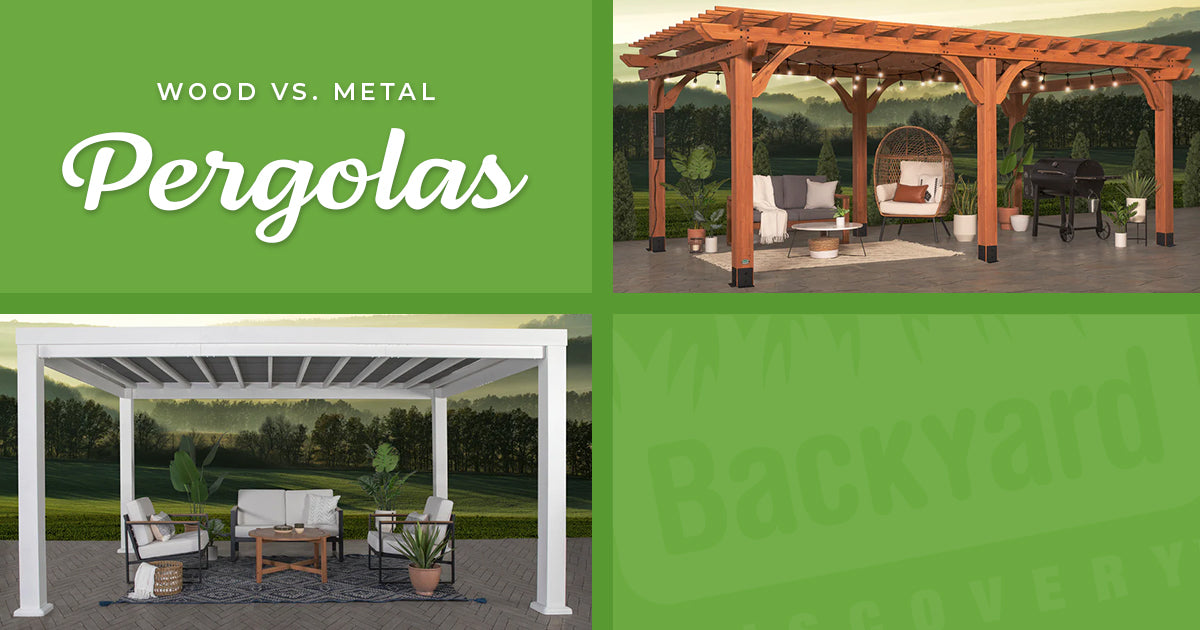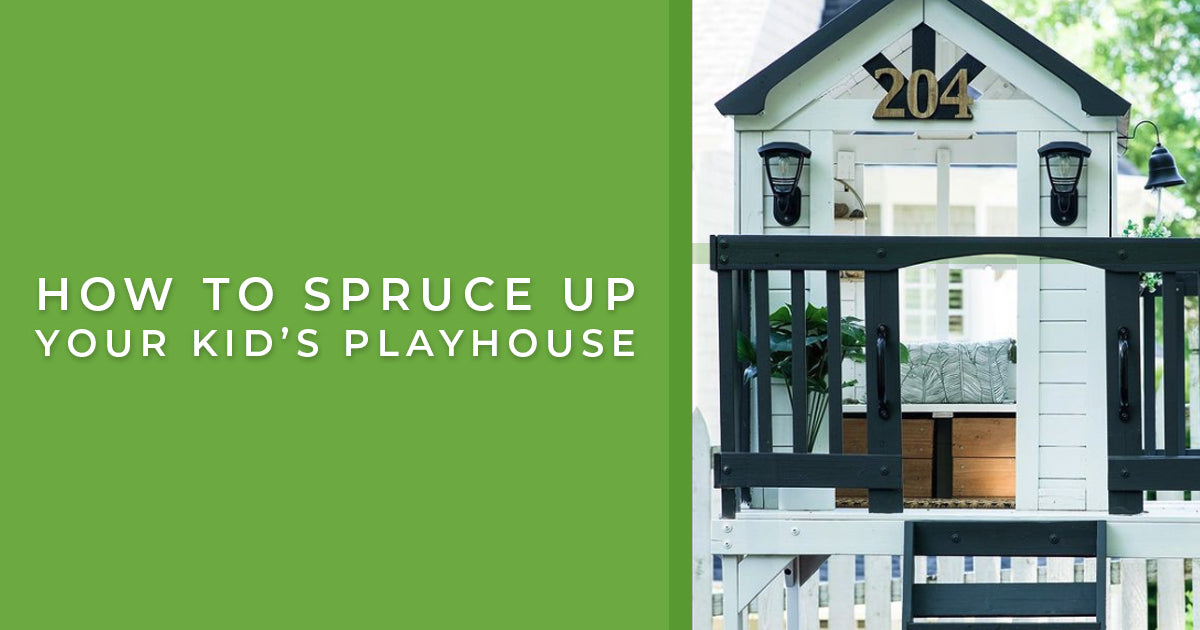Pergolas are a great way to add structure, style, and shade to your backyard or garden. But if you’re looking to add one to your home, you must first decide which material you want your pergola to be made of.
Let’s look at the pros and cons of both wooden and metal pergolas each so you can decide which one makes the most sense for your backyard.

Wooden Pergolas
Wooden pergolas are great for those who desire a more rustic, natural style and feel for their outdoor space. Wooden pergolas can come in many types of wood, but they mainly come down to two categories: pressure-treated lumber like pine or untreated wood like cedar or nordic spruce.
Pressure-treated wood is cheaper, can be painted or stained in various colors, and is chemically treated with pesticides to resist rot and repel insects. Cedar lumber, on the other hand, naturally repels insects and is resistant to decay. It also has a distinct reddish color and an appealing outdoor scent. Cedar lumber can also be stained to bring out more of the wood's natural color or painted to better match your outdoor space's ambiance.
Wood also has the advantage of having a timeless quality, and it’s versatile, giving you many different style options. Compared to metal pergolas, wood is usually less expensive, allowing the upfront cost to be lower.
However, wood does have some limitations. Unlike metal, wood requires more maintenance and upkeep. Paint can chip, peel, and crack, and stain can gradually fade, requiring you to either repaint or restain the wood.
And though it’s rarely a concern, remember that wood is combustible, which may limit where you place your pergola and what you put under it.

Metal Pergolas
When it comes to metal pergolas, the keyword is durability. While metal is a more expensive material than wood, its ability to last much longer with little maintenance can offset the cost. They are also easy to clean, requiring only a quick pressure wash now and then.
Metal pergolas can be constructed from different metals like steel or aluminum. Just as different types of wood have unique properties, the kind of metal you use will depend on your environment and needs.
Aluminum pergolas are light and naturally resistant to corrosion, making them ideal for backyards near saltwater. Unfortunately, because they are so light, they must be securely anchored down so they don’t blow away with the wind!
Steel pergolas have the advantage of being much stronger and tougher than their aluminum cousins and don’t need to be anchored down. When you galvanize the steel and add a powdered coating, it becomes almost impervious to rust and corrosion while making it highly resistant to chipping, scratching, and UV damage.
And just as wood brings a rustic atmosphere to any occasion, metal helps to give your space a more modern and urban landscape. And because metal can be made to be both thin and durable, metal pergolas can be made to have narrower and sleeker designs that wood just can’t match.
Wood vs Metal Pergolas: Which is Better?
With all that in mind, which material is better for your backyard pergola?
The first step is to imagine! Go out onto your deck or patio.
Stand in your backyard where you plan on having the pergola. Picture the pergola in that space. Then, think of two different scenarios: one wood and one metal. Catch the scent of cedar on the breeze and feel the warmth of wood. Then, picture the vibe that metal will give.
Consider how the pergola will look along with everything else in your backyard. Remember that both wooden and metal pergolas can be covered or include canopies to add more shade, can be either freestanding or attached to a building, and can come in many different sizes. Once you have all of this in mind, make the decision that feels right for you!
Pergolas are a great option when you want to add style to your backyard or patio. Because pergolas come in various styles and materials, it’s crucial that you do your research before making a final decision on which works best for your needs.



Leave a comment
This site is protected by hCaptcha and the hCaptcha Privacy Policy and Terms of Service apply.